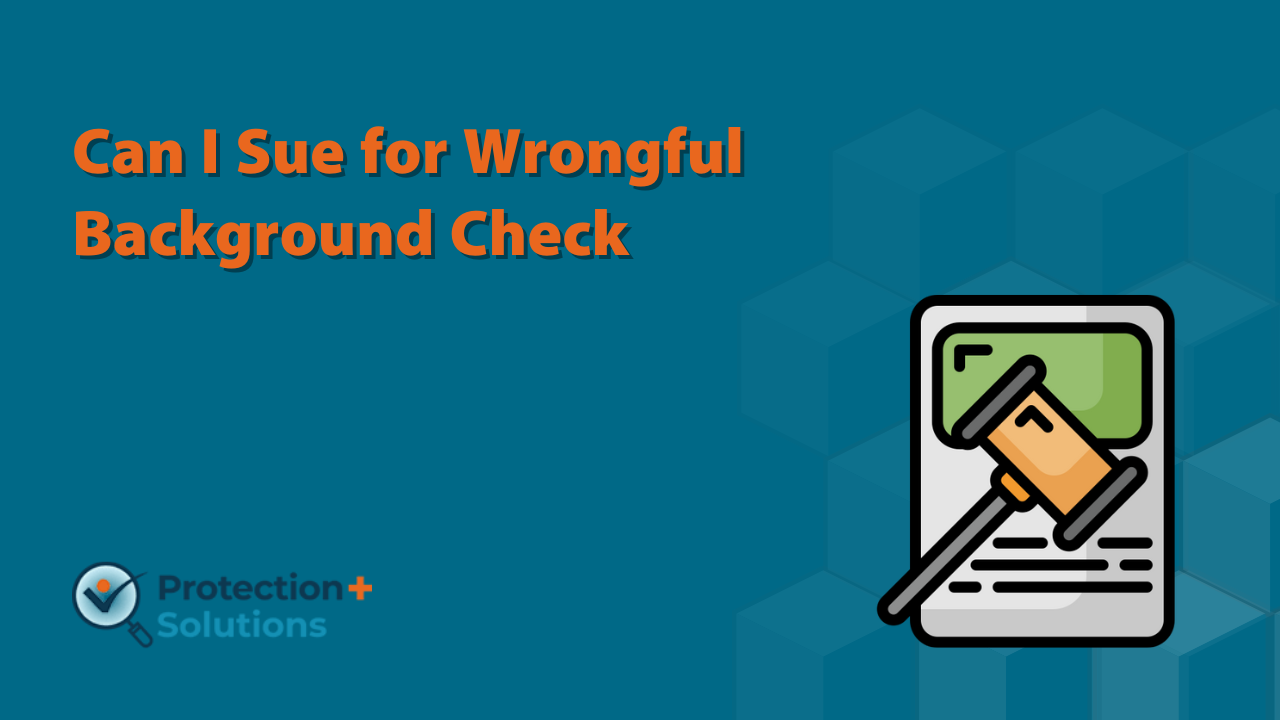Can I Sue for Wrongful Background Check

Have you ever lost a job because of a background check error? Imagine preparing for weeks, nailing every interview, only to be rejected for something that wasn’t even true. Frustrating, right? Let’s dive into when you can sue for wrongful background checks and what your rights are under U.S. law.
What is a Wrongful Background Check?
Examples of Wrongful Background Checks
Wrongful background checks happen when the information reported is incorrect, outdated, or mixed up with someone else’s records. For example:
- Listing a felony you never committed
- Showing charges that were dismissed
- Reporting on the wrong person with a similar name
How Errors Happen
These errors often stem from:
- Data entry mistakes
- Identity confusion (same name, different person)
- Incomplete court records
- Reporting agencies not updating information
Can You Sue for Wrongful Background Checks?
Grounds for Suing
Yes, you can sue if:
- The background check contained false information
- The employer didn’t give you proper notices
- The reporting agency failed to correct errors after your dispute
Types of Lawsuits
Your lawsuit could claim:
- Negligent violation – agency failed to ensure accurate reporting
- Willful violation – agency knowingly or recklessly reported false data
Employers’ Responsibilities
Notice and Consent Requirements
Before running a background check, employers must:
- Notify you in writing
- Get your signed consent
Pre-Adverse and Adverse Action Notices
If they plan to deny you employment based on the report, they must:
- Give you a pre-adverse action notice with a copy of the report
- Allow you time to dispute errors
- Send an adverse action notice if they finalize the decision
How to Identify if You Have a Case
Reviewing Your Background Report
Always ask for a copy of your background check, especially if denied employment. Look for:
- Incorrect criminal records
- Wrong addresses or employment history
- Outdated information
Evidence Needed for a Lawsuit
Keep:
- Copies of your background report
- Employer communication
- Dispute letters sent to the reporting agency
Steps to Take Before Suing
Disputing Errors with the Reporting Agency
Under FCRA, you must first:
- File a dispute with the agency reporting the error
- Wait for their investigation and correction
Contacting an Employment Lawyer
If the agency fails to correct the issue, contact an employment attorney specializing in FCRA cases for advice on filing suit.
Potential Compensation for Wrongful Background Check Lawsuits
Statutory Damages
You may receive $100-$1,000 per violation even if you didn’t suffer actual harm.
Actual Damages
Covers financial losses like lost wages due to job rejection.
Punitive Damages
Awarded if the agency or employer acted willfully or recklessly in violating the FCRA.
Common Mistakes to Avoid
Ignoring Notice Letters
If you receive a pre-adverse action notice, don’t ignore it. Use the time to correct errors before final decisions are made.
Failing to Review Reports Regularly
Request your background reports occasionally to ensure accuracy before applying to sensitive jobs.
How Long Do You Have to Sue?
Statute of Limitations under FCRA
You have two years from the date you discovered the violation or five years from the date of the violation, whichever is earlier, to file a lawsuit under FCRA.
Preventing Future Wrongful Background Checks
Regular Self-Checks
Order your background report from major screening agencies yearly to verify accuracy.
Monitoring Services
Consider subscribing to identity or background monitoring services if you’re applying for jobs in finance, law enforcement, or security sectors frequently.
Conclusion
Wrongful background checks can ruin your career and reputation overnight. But you’re not powerless. Know your rights under FCRA, dispute errors quickly, and consult a lawyer if you face discrimination due to false information. Your future shouldn’t be derailed by someone else’s mistake.

